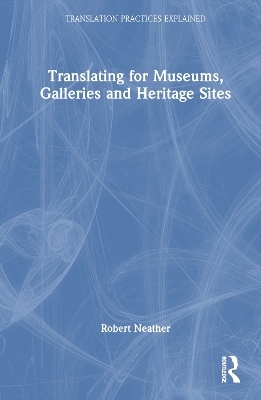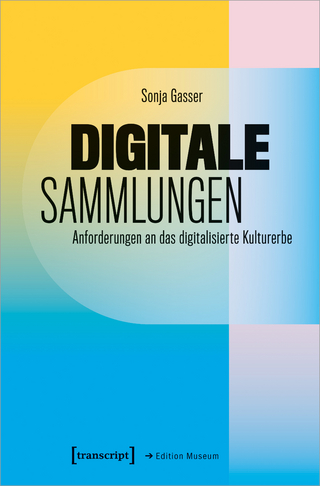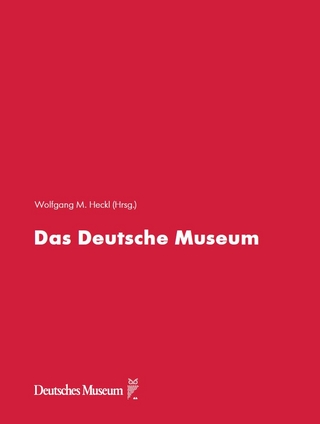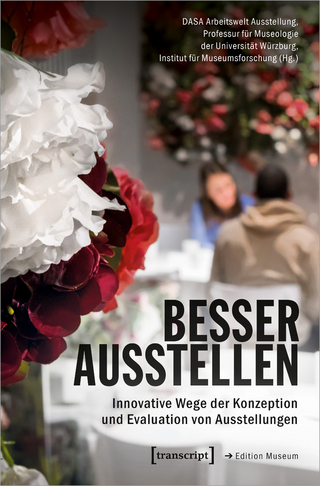
Translating for Museums, Galleries and Heritage Sites
Routledge (Verlag)
978-1-138-57185-3 (ISBN)
Translating for Museums, Galleries and Heritage Sites focuses on the translation of interpretive and information texts, particularly in the museum context. After an initial introduction and an overview of key concepts in both museums and translation, it looks at three broad groupings of texts from the museum text system: fixed labels and wall panels, leaflets and other portable learning resources, and catalogues and guides, including a section on websites. It concludes with a call to place translation centre stage in museum, gallery, and heritage practice. The book will be of use as a coursebook for students at both undergraduate and postgraduate levels, and for practitioners in the sector, and is designed to be suitable for both individual and class-based learning.
Robert Neather is Associate Professor in the Department of Translation, Interpreting and Intercultural Studies at Hong Kong Baptist University. He has published extensively on museum translation, particularly in relation to the Chinese context, and has taught courses involving museum translation for a number of years. He is also a UN-qualified translator and has significant freelance translation experience.
Acknowledgements
1. Introduction
1.1 Mapping museum translation
1.2 Content and structure of this book
1.3 What this book does not cover
1.4 Who is this book for and how can it best be used?
2. Conceptual overview: Key issues and concepts in museum translation
2.1 Museum function
2.2 Curators and visitors
2.3 Objects and visuals
2.4 Space
2.5 Texts and text types
2.6 Intertexts
2.7 Translation purpose
3. Practitioner and professional perspectives
3.1 Whose translation – and why?
3.2 Understanding the commissioner: what influences a museum’s language provision?
3.2.1 Resources
3.2.2 Visitor demographics: international visitors or local communities?
3.2.3 Policy and geopolitics
3.3 Quality assurance
3.3.1 Boundary practices: strengthening cooperation between museum and translator
3.3.2 Understanding the visitor perspective
3.4 The translator as collaborative academic researcher: a short vignette
4. Translating for the exhibition space: Wall panels and object labels
4.1 Thinking about communicative purpose
4.1.1. Text length and density
4.1.2 Appeal to the reader
4.1.3 Space and the verbal-visual ensemble
4.2 Thinking about the text
4.3 Positioning languages on the label: code preference
4.4 Interacting with the reader: voice, interest, and creativity
4.4.1 Translating creative labels
4.4.2 Creative translation of labels and panel titles
4.4.3 Going poetic
4.5 Handling cultural difference in labels
4.5.1 Micro adjustments of representation: covering lexical gaps
4.5.2 Broader adjustments in interaction: revolutionary rhetoric
4.5.3 Racial issues in labels
4.6 When objects contain text: non-translation, translation, and radical engagement
5. Translating optional materials for added learning: Leaflets, worksheets, and audio guides
5.1 Thinking about how leaflets work
5.1.1 Leaflets as multimodal assemblages
5.1.2 Leaflet function
5.2 Expository leaflet texts: a trilingual example
5.2.1 Adjusting expository structure in the translation
5.2.2 Combining structural adjustments with addition strategies
5.2.3 Other adjustments
5.3 Visitor information in leaflets: increasing interactional tone
5.4 Educational materials: worksheets
5.4.1 The nature of worksheets: factors in worksheet design
5.4.2 The language of worksheets
5.5 Audio guides
5.5.1 Factors influencing audio guide use
5.5.2 Issues and strategies in audio guide translation
6. Translating texts beyond the museum: Museum catalogues, guides, and webpages
6.1 Thinking about catalogues and guides: audience, function, and features
6.2 Pictures and text in catalogues and guides: what is language doing?
6.2.1 Pictures as illustrations of general art-historical context
6.2.2 Where artefacts take centre stage: texts as interpretations
6.3 Translating and recasting historical narrative: a web-based example
6.4 Coping with complexity in catalogues and guides
6.4.1 Technical terms
6.4.2 Handling technical density: unpacking cultural reference to improve readability
6.4.3 Complexity of art-historical language
6.5 Rhetoric and personal comment in catalogue prefaces and forewords
6.6 Website-specific issues
7. Translating cultures: Putting museum and heritage translation centre stage
7.1 Conceptualizing the museum as a translation zone
7.2 Integrating translation into the whole
7.3 The many forms of translation
7.4 The way forward: expanding collaboration
References
Index
| Erscheinungsdatum | 10.07.2024 |
|---|---|
| Reihe/Serie | Translation Practices Explained |
| Zusatzinfo | 47 Halftones, color; 47 Illustrations, color |
| Verlagsort | London |
| Sprache | englisch |
| Maße | 156 x 234 mm |
| Gewicht | 640 g |
| Themenwelt | Kunst / Musik / Theater |
| Reisen ► Reiseführer | |
| Geisteswissenschaften ► Geschichte ► Hilfswissenschaften | |
| Geisteswissenschaften ► Sprach- / Literaturwissenschaft ► Anglistik / Amerikanistik | |
| Geisteswissenschaften ► Sprach- / Literaturwissenschaft ► Literaturwissenschaft | |
| Geisteswissenschaften ► Sprach- / Literaturwissenschaft ► Sprachwissenschaft | |
| ISBN-10 | 1-138-57185-7 / 1138571857 |
| ISBN-13 | 978-1-138-57185-3 / 9781138571853 |
| Zustand | Neuware |
| Haben Sie eine Frage zum Produkt? |
aus dem Bereich


